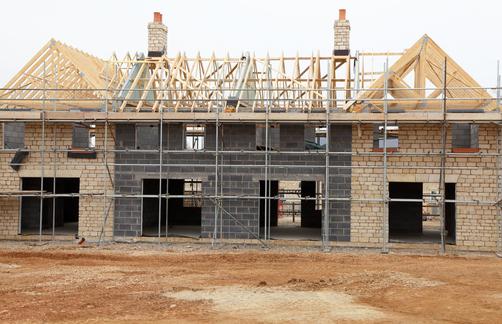BREEAM and net zero carbon update
BRE, like BREEAM, provides a collection of tools to help you on your ultra-low carbon or even net zero carbon journey. Supporting the carbon conscious, those looking to manage risk and those looking to realise the opportunities for the built environment on the transition to net zero carbon.
As the urgent need to address the impact of the built environment becomes clearer, the launch of BREEAM Version 7 consultation and BRE’s net zero carbon survey aims to ensure that BRE remains at the forefront of efforts to combat the climate emergency.
Whilst much progress has been made, there is still much to do to limit the impact of the built environment, which contributes around 38% of carbon globally. Embodied carbon from the construction and refurbishment of buildings makes up 20% of built environment emissions according to the UKGBC Carbon Roadmap. In the UK, heating our buildings also accounts for almost 25% of emissions.

BRE has been a driving force in improving the built environment for over a century. We established the first quality standard for construction in the 1920s, and launched BREEAM, the world’s most recognised sustainability accreditation for commercial buildings, in 1990. BREEAM has helped over a million buildings in nearly 90 countries become more sustainable from their concept design, through to building operation .
We also test technology like heat pumps, provide data to government on public health impact of excessively cold homes, and work in partnership with universities, local authorities and businesses to pilot and evaluate carbon reduction strategies.
BREEAM uses an integrated approach to sustainability, with net zero carbon a key focus. We know that whole life carbon is increasingly important and want to gather industry views on how we can best support them to measure – and reduce – this. Refining BREEAM to ensure that it remains up to date means that it will continue to go well beyond the baseline set by building regulations and represent industry best practice across the world. The BREEAM Version 7 update represents BRE’s continued commitment to progressive, science-backed sustainability assessments that result in positive outcomes for the planet, asset owners and the people use them.
At the moment, the collective efforts of the built environment sector fall short in sufficiently mitigating emissions – we are not effectively addressing our dependence on fossil fuels. Given that 92% of respondents to a BRE poll highlighted the net zero carbon transition as the principal growth opportunity for the built environment, BRE hopes to support the construction and real estate industries to make sustainable practices the norm.
To encourage action in addressing climate change, it is important to recognise its alignment with other widely embraced global values. Taking a systemic approach offers substantial opportunities for efficient and effective collaboration. 88% of respondents to our poll agreed that worldwide sustainability needs a holistic approach. This is why considering the health and social effects of the built environment, promoting circularity and resilience, and preserving biodiversity are all included in our BREEAM technical standards.

BREEAM Version 7 will also report against established net zero carbon trajectories such as the Carbon Risk Real Estate Monitor (CRREM), to help asset owners manage the carbon risk from their operational energy. BREEAM complements these standards by incorporating industry-established benchmarks for embodied carbon and maintaining alignment with other measurement standards for comprehensive carbon reporting. If buildings have existing accreditation under other standards, it will automatically count towards their BREEAM assessment.
Improving building performance and making sustainable decisions is most effective when informed by high quality, consistent and accessible data. We need much more data on the carbon impact of particular construction products and materials. Along with other stakeholders, BRE is helping to build and develop the Built Environment Carbon Database (BECD). BRE encourages UK built environment industry practitioners to continue advancing by providing operational energy and embodied carbon performance data for their buildings. BRE is also among the organisations spearheading the creation of the UK Net Zero Carbon Buildings Standard (NZCBS). By using the BECD to ensure the availability of high-quality data, the NZCBS will establish a universally accepted definition and methodology for the industry.
Industry professionals play a crucial role in shaping a sustainable future. Your participation in our net zero carbon survey and BREEAM Version 7 consultation not only provides valuable data for informed decision making but also allows us to continuously improve BREEAM, helping to reduce the impact of one of the most polluting industries globally. Together, we can drive sustainable building practices to new heights and create a brighter future for the built environment.
